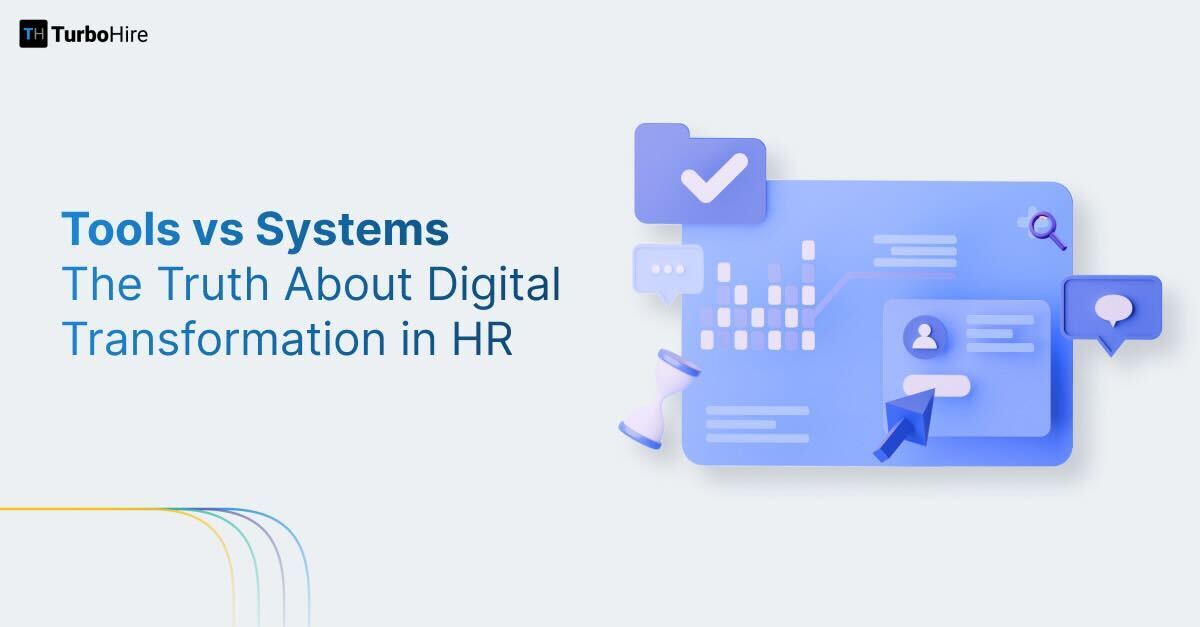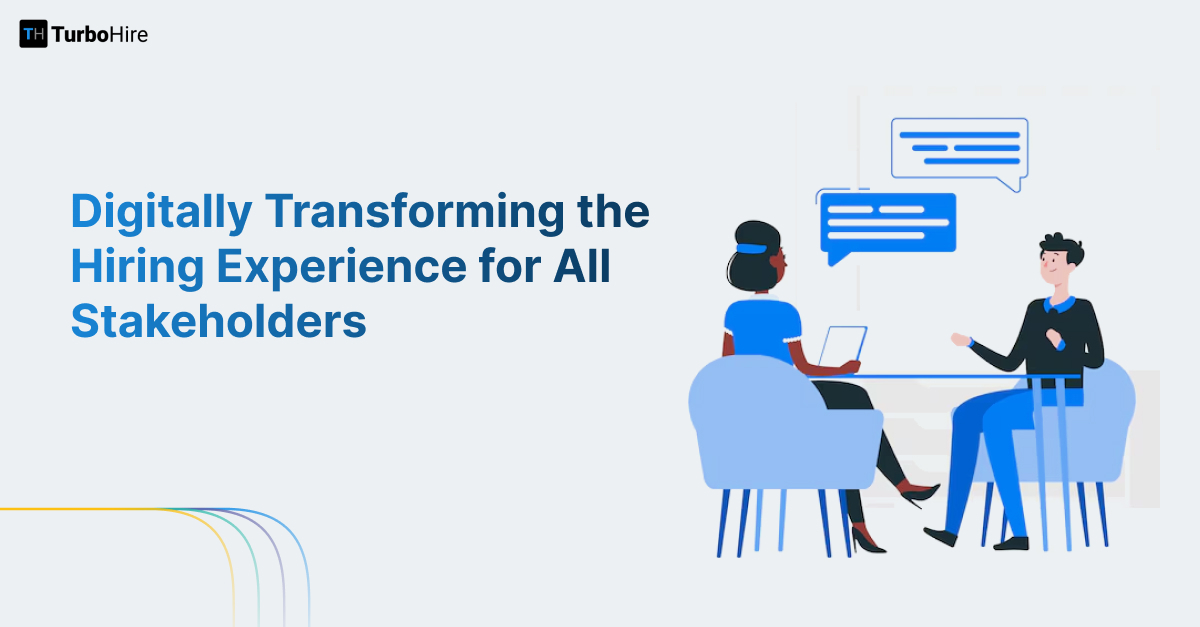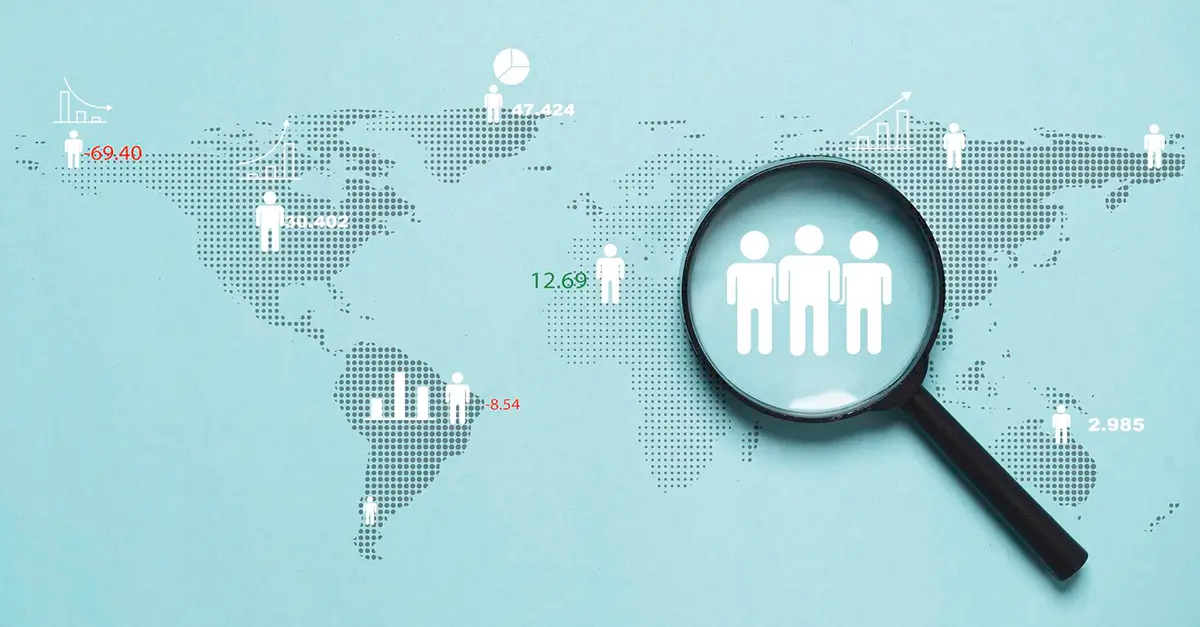TurboHire has created a detailed Global Recruitment Report 2020 for Recruiters, CHROs, HR Managers and the whole of Talent Acquisition industry to give a better insight into the scene of Recruitment, pre and post-pandemic era. Update on the hits and misses of 2020, a historical year that brought about major changes in the way hiring had previously been done.
The Global Recruitment Report 2020 is a detailed study on the hiring trends of the past, that is, 2018-2019, and the present, that is, 2020, and their impact on Recruitment. In order to endure the coming decade, human resources managers need to remain on the ball and use underestimated aptitudes.
Hiring During Covid-19
The global pandemic of 2020 has profoundly changed the macroeconomic scene and the talent hunting market within a short period of time. So, what does the future hold for the recruitment industry, what should we expect? For some talent obtaining groups, the pandemic has implied diminished headcounts, re-imagined group capacities, and downshifts in cycles and needs; for other people, it’s implied multiplying down on recruiting in the midst of incoming numerous and inbound applications.
The difficulties ahead for hiring might be changing, yet the difficulties themselves aren’t going anyplace. And keeping in mind that we can’t foresee the future, we can offer a birds-eye perspective on main concerns, activity plans, and aggregate worries that may assist you with a better understanding of the scene we’re actually acclimating to, evaluate your organization’s place in that scene, and envision what may lie ahead of you. It’s as significant as ever to keep a heartbeat on the business at this moment.
Top 5 Recruitment Trends Before Covid-10 (2018-2019)
In 2018-19 Recruiters were included innovative trends to attract the best talents. The top 5 Hiring Trends that were implemented successfully during this time were as follows:
- Inbound Recruitment
- Greater focus on Employee Wellness
- Talent Pool
- Humanizing the recruitment process
- General Data Protection Regulation (GDPR)
Top 5 Recruitment Trends in 2020
In 2020, digital advances in hiring practices undoubtedly played a hand, and this interruption gives no indications of easing back as we enter the new decade. In a nutshell, the top 5 Hiring Trends of the year 2020 are as follows:
- Remote Hiring and Onboarding
- Hybrid Jobs
- Artificial Intelligence for Talent Identification
- Employer Branding
- Changing demand landscape
What To Expect in Talent Acquisition in 2021?
1. Artificial Intelligence For Talent Identification
Artificial Intelligence has developed from an unsure future dream to a developing set-up of moderate and simple to utilize HR applications. A work environment of things to come will be made of a dynamic, quick, and computerized condition that can satisfy various necessities productively. With the approach of AI innovation, the customary employing measure has been moved up to brilliant enrolling that fuses AI.
Let us indulge more in the genuine use instances of AI in hiring and recruitment. We should perceive how it will affect and carry change to business results:
- Candidate Screening
- Candidate Matching
- Resume Updates
- Chatbots
AI is the least mature trend, but don’t be fooled: you’re probably already using AI in your job and it may just be the boldest disruptor of all. However, there is a general confusion in the market and among users about what is Machine Learning and what is AI. While Machine Learning is based on history of actions on limited data sets of company (and the attributes which were captured and not captured) and extrapolation onto future actions, it has serious limitations in perpetuating biases. Who can forget the infamous Gender Discrimination in Recruiting at Amazon.
AI while is at the nascent stage, holds the bigger and better promise, with abilities to proactively direct both its objectives and self-learning models.
2. Diversity And Inclusion in Hiring
Diversity and Inclusion are the biggest game-changers and most embraced trends with over half of companies are already tackling it head-on. Companies of repute have taken upon themselves to appear more humane and just, without which they understand that they will not be able to protect their brand in the minds of hyper-connected and fairness-seeking youth. The other big factor that unprecedented economic growth in 21st century has dried up traditional and limited talent pools. It has become doubly important to evaluate alternate talent pools across the world. The necessity of protecting brand and meeting the requirements of talent both get beautifully combined under the umbrella of Diversity and Inclusion.
3. New Interviewing Techniques
New interviewing techniques (e.g., soft skills assessments and job auditions) are gaining favor as ways to augment traditional interviews, but adoption is still early. With the arrival of SMAC, the hiring digital systems are bursting at the seams with Candidate Applications. For many companies which are favorites in the job markets, there is simply no bandwidth available to be able to do personal-interview for every candidate to make hiring decisions. New models and tools are emerging to help do in a manner that saves time, money, and travel.
4. Data-driven Intelligent Hiring
About half see data as critical to the future of hiring, but consistent usage still isn’t widespread. So far, the candidate data was seen to have only temporal value. Organizations are now releasing that just like retaining and rewarding loyal customers there is value in retaining candidate data and building lasting relationships with them. However, this depends upon adopting right digital platform to first start maintaining data and then fulfilling organization objectives backed by right data tools to craft and execute relation-building strategies.
HR Tech Trends in 2020
According to Gartner’s report on HR technology trends 2020, by 2020, 30% of global midmarket and large enterprises will have invested in a cloud-deployed Human Capital Management suite for administrative HR and talent management, but will still need to source 20% to 30% of their HR requirements via point solutions.
1. Analytics and AI in recruitment
Gartner’s 2020 Human Capital Management report quotes by 2022, 35% of organizations will utilize conversational user experience and natural language processing interactions in their talent acquisition, which will turn the job application process into a simple conversation.
There has been a steady increase in the demand for AI technology and tools from the past few years to be used in recruitment. The biggest challenges in the recruitment cycle can be solved by using data analytics and AI. These tools help recruiters in dealing with huge candidate databases and using predictive analysis like candidate match with the job, candidate behavior analysis, and candidate’s compatibility with the company culture using the information from their resumes and other sources.
By increasing the effectiveness of the hiring process, it will be possible to gain a broader reach and a higher volume of candidates.
2. Emphasis on improving the candidate experience
A company’s recruitment process has a profound effect on the candidate. It can make the candidate vouch for your company or the opposite. Around 49% of candidates said they would turn down an offer due to bad recruitment experience. 44% of candidates said they’re open to using automation and technology options for routine touchpoints and to get information during the recruiting process. And 65% of candidates said they would like organizations to have an application dashboard so they can see where they are in the process.
Thus focusing on improving candidate experience by providing proper feedback, effective communication, and a just recruitment experience can do wonders for the company’s reputation in the long run.
3. Increased Emphasis on Soft Skills to hire High Potential Employee
Soft skills relate to how you work and co-operate with your teammates. They are non-technical, interpersonal skills which include time management, listening, and co-operation. Nearly every job requires employees to engage with other employees and for reducing workplace disputes, companies aim to recruit candidates which can contribute to the creation of a positive work environment.
Due to this, an increasing number of companies are adapting their recruitment process to include pre-employee assessments like cognitive test, behavior tests, etc, and using AI-driven video interviews to access soft skills and behavior before making hiring decisions.
According to a National Association of Colleges and Employers survey, employers emphasized leadership and the ability to work in a team as the most desirable attributes when recruiting recent college graduates, ahead of analytical and quantitative skills.
High potential employees improve team performance by 15% and are likely to succeed in senior roles. Thus, focusing on recruiting employees with high potential works out for the institution in the long term.
The Growth Of Remote Hiring During Covid-19
After a decrease in hiring activity because of the pandemic, recruiting in India expanded by 35 percent between April and June, as per a LinkedIn report. The report demonstrated that competition among competitors for jobs has multiplied contrasted to six months ago, with the average number of candidates per post posted on LinkedIn expanding from around 90 in Jan 2020, to 180 in June 2020.
Technology is at the core of remote hiring, and remote hiring has scaled exponentially in the last 12 months. However, to source, screen, interview, and recruit potential candidates for all intents and purposes, you need the correct recruiting tools that empower you to interface with potential candidates from various geographic areas. Not only that, but remote hiring also requires the prefabrication of your existing strategies, equipment of the right skills, and altering the existing recruitment techniques.
- More than 98% of fortune 500 companies make use of recruitment and hiring software. Source: Jobscan’s research
- 78% of companies say that making use of an Applicant Tracking System or any recruitment technology makes it easier to find better talent. Source: Career Builder
- 68% of recruiting managers and professionals believe that the best way to improve hiring activity over the next 5 years is by investing in new and more developed recruiting technology. Source: LinkedIn
- 94% of recruiters and hiring professionals say their using recruitment software has positively impacted their hiring process. Source: Capterra’s research




















